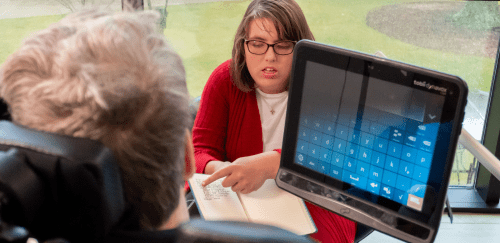At the Paul V. Sherlock Center on Disabilities at Rhode Island College, we are dedicated to empowering Rhode Islanders with disabilities through innovative technology solutions.
Our technology projects strive to enhance independence, accessibility and inclusion for all by providing resources that focus on supporting Rhode Islanders with access to cutting-edge assistive technology solutions.
We offer:
- Training and support: We coordinate training, collect and share data and provide support to ensure individuals with disabilities and caregivers feel confident and skilled in using their technology. Our goal is for individuals to make the most of assistive technology.
- Collaboration and advocacy: We believe in the power of collaboration and advocacy to drive positive change. We work closely with individuals, families, educators, health care professionals and community organizations to promote awareness, accessibility and inclusion for people with disabilities.
- Research: Sherlock Center faculty and staff are investigating the use of robot technology to improve social emotional outcomes for autistic students. Supported by a RIDE grant, researchers are working with students, families and educators in a Rhode Island elementary school to see if the Robokind robots and curriculum will help students improve communication skills, emotion regulation and problem solving. This project will expand to other schools later in 2024.


